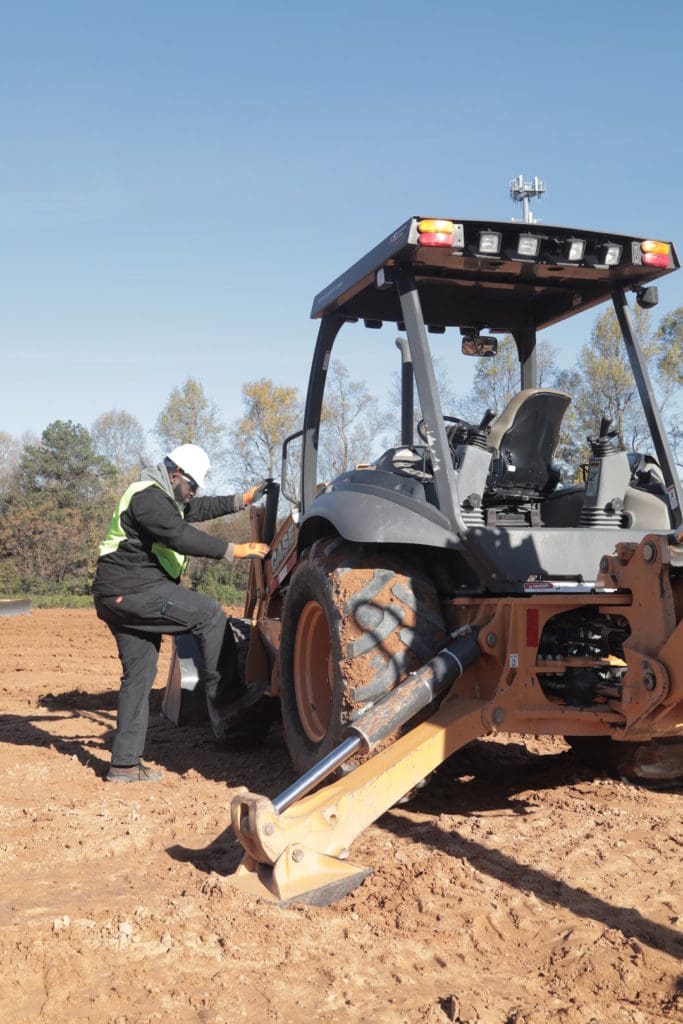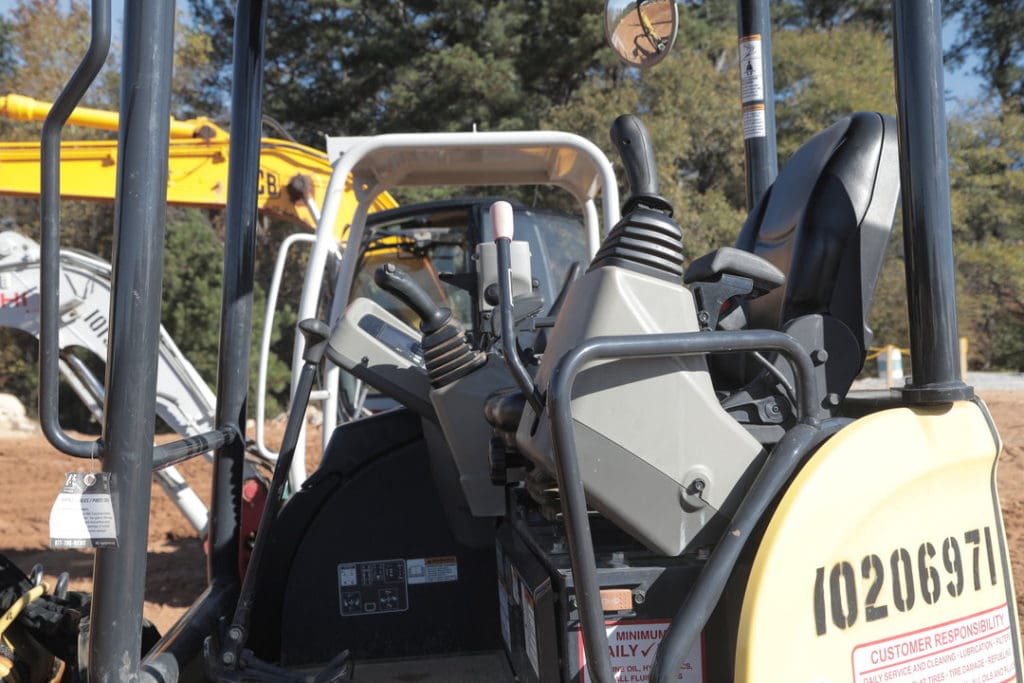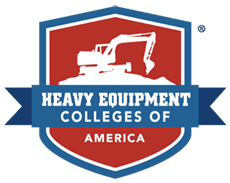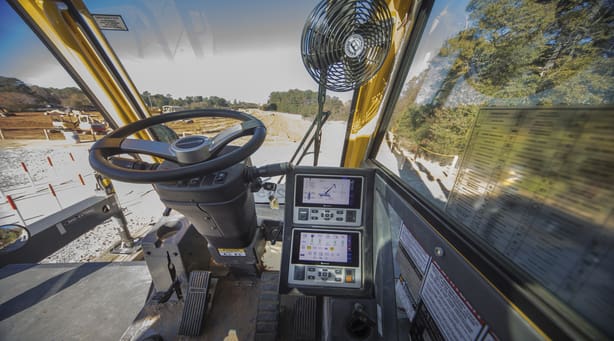Workplace safety is an essential part of everyone’s job. This is especially true for occupations with a higher risk for bodily harm, like heavy equipment operation. Unfortunately, mistakes do happen in construction sites and other places heavy equipment is used, which is why safety practices and protocols are so crucial; they can save lives in the event of a mishap. Below are some safety instructions that can keep you safe while inside the cab of a heavy equipment machine:
External Walk-around
One of the most important steps of safety is done before you even get in the cabin of a piece of heavy equipment. Always conduct a thorough external inspection, making note of any wear and tear on the machine that may be problematic. Doing a lap around the machine prior to getting in the cab will prevent any catastrophic accidents due to faulty equipment.

Protect Your Ears
Depending on the type of equipment, it can be loud inside the cab of a heavy equipment machine. A bulldozer, for example, can generate noise up to 112.5 decibels. For reference, 85 decibels is the level at which continued exposure begins to cause noise-induced hearing loss. That being said, always wear ear protection, as required by company policy, while operating heavy equipment.
Do an Internal Inspection
Once you are in the cab, make sure all the components are in working order. If something is malfunctioning, you can avoid using the machine and notify the proper party to ensure the right repair is made. As with the external inspection, this will prevent mishaps caused by faulty equipment.
Wear Required Personal Protective Equipment (PPE)
Different heavy equipment machines may require different kinds of personal protective equipment. This can include gloves and eyewear, so be sure to consult with your supervisor and the OSHA guidelines.
Communicate Effectively with Others
Effectively communicating with others in the work zone is vital to preventing injuries to yourself and others. Be sure to follow proper communication protocol to minimize injury risk. There’s a reason heavy equipment machines have horns. Use them.

Comply with Regulatory Bodies
Construction workers are protected by industry standards, rules and regulations set forth by regulatory bodies such as the Directorate of Construction (DOC) in OSHA. OSHA works in tandem with the DOC to create occupational guidelines and legislation focused on the construction industry.
Education Is the Best Defense
Knowledge is power. This rings true for safety in the heavy equipment industry. Maintaining knowledge of the best safety practices is the best defense against workplace mishaps inside the cab and out. Enrolling in a heavy equipment program at a trade school near you is a great way to learn the basics of heavy equipment safety. You will later build on these fundamentals in on-the-job training. There’s no better place to learn these fundamentals of cabin safety than at a Heavy Equipment Colleges of America campus.
Construct a Rewarding Career at HEC
At Heavy Equipment Colleges of America, you will learn the essential skills to succeed as a heavy equipment operator. HEC has seven campuses across the country, each full of instructors who pride themselves on providing practical heavy equipment education tailored to its students’ individual needs. HEC’s programs offer the perfect mix of textbook learning and hands-on experience to adequately prepare you for a job in the industry.
HEC has over a decade of experience training heavy equipment operators. All seven campuses are approved testing sites for the National Commission for the Certification of Crane Operators (NCCCO).
Heavy Equipment Colleges of America offers comprehensive heavy equipment operating courses that can be completed in as soon as three weeks. This may provide you with the knowledge and competence you need to start your new career. Don’t wait; hop into the driver seat of your new career. Learn more about HEC’s programs or schedule a tour of the campus nearest you by logging on to https://heavyequipmentcollege.edu/.

